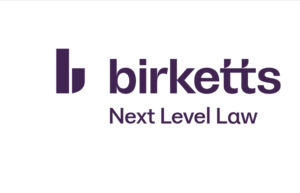What does the Spending Review means for your business?

Following the Spending Review 2025, The Global Payroll Alliance (GPA), has analysed the government’s financial plan to provide a guide to exactly what it means for you and your business.
The Spending Review 2025, presented to Parliament by Chancellor Rachel Reeves on the 11th June 2025, outlines exactly how the government plans to spend its money, where it will be directed, and defines the key improvements that the public can expect as a result. It has a huge impact on UK businesses, both big and small, affecting everything from the training and upskilling that will be made available to their employees, to the kind of funding and grant opportunities that could have access to in the near future.
Here is GPA’s guide to what the Spending Review means for your business.
Access to finance
The financial capacity of the British Business Bank is highly relevant to small and medium sized businesses (SMEs) as it dictates how much funding the government can offer through things like Stat Up Loans.
In a promising move for businesses, the Spending Review 2025 revealed that the British Business Bank will see its budget increased to £25.6 billion, suggesting that funding and finance coffers will be deeper than they have been for quite some time.
Skills and training
Rachel Reeves announced that by 2028-29, the government is to provide an additional £1.2 billion per year towards skills and training programmes across the country.
This includes a strong focus on funding and support for more than 1.3m 16-19 year-olds to help them access high-quality training which will apparently support 65,000 additional learners.
In theory, this means the pool of skilled talent available to UK businesses will increase dramatically over the next few years in a move that is hoped will enable the UK to increase its weight on the global economic and business stage.
Research and development
One of the more substantial announcements in the Spending Review was that £22.6 billion a year will be dedicated to research and development in a move that the government says will support its “forthcoming modern Industrial Strategy”.
Of this £22.6 billion, £500m will go towards a R&D Missions Accelerator Programme “to break down barriers and accelerate the delivery of the government’s missions”; £410m goes towards a new Local Innovation Partnerships Fund, giving local leaders a central role in co-creating R&D programmes to support local economies; and more be used to support “vital investment in universities, research institutes and businesses across the UK”.
This money is intended to demonstrate the government’s commitment to put the UK at the forefront of global innovation and industry from education institutes upwards. One would hope that businesses who are also committed to research and innovation will be brought in to contribute towards this effort, and receive the funding and support necessary to do so.
Artificial intelligence
The government has pledged over £2 billion to its AI Action Plan, including a 20-fold increase in support for compute capacity. £160 million of this will go to TechFirst to ensure people have the right skills to deliver technological change, and the government also intends to push adoption of AI by small businesses, setting up “AI growth zones” to speed up planning proposals, partnerships between AI vendors and start-ups. There will also be a new UK Sovereign AI Unit working with the British Business Bank to support so-called “national AI champions”.
As part of this effort, the government has announced a £187 million national digital skills programme, £18 million of which will go directly to small businesses.
Additional points of interest
£3bn for R&D in advanced manufacturing
Significant new funding to clean energy industries
Significant new funding for creative industries to “ensure the UK’s creative industries remain world-leading”.
Financial Services Growth and Competitiveness Strategy will be published alongside the Chancellor of the Exchequer’s Mansion House address on 15 July.
Life sciences to receive up to £600, between 2026‑27 and 2029‑30.
Significant additional for Professional business services
Melanie Pizzey, CEO and Founder of the Global Payroll Alliance, says:
“The government’s funding plans for business, innovation, and R&D are welcome news indeed. It’s an investment that the UK desperately needs in order to catch up with other nations and we’re pleased to see this new level of commitment coming from the central government.
However, these are very much long-term plans that many commentators have said will require the country to borrow huge amounts of money. While this in itself is no bad thing – long-termism has been sorely missing from UK politics of late – it does leave these good intentions vulnerable to economic turbulence. If the UK economy struggles over the next few years, or we’re faced with another unplanned situation such a health pandemic or global financial crisis well outside of the UK’s control, money that is currently earmarked for innovation in 2030 could quickly evaporate or be directed elsewhere.
In short, if these plans come to fruition, it’s great news for UK businesses, but the next couple of years will be a fraught wait to see if these plans remain viable and money does indeed start coming in towards the end of the decade.”




